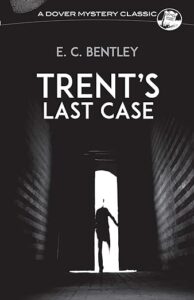
Surprise – noun — a completely unexpected occurrence, appearance, or statement.
* * *
Unsurprisingly, there’s been some research done on the science of surprise. I read this summary on Melissa Hughes’s blog.
There is science in surprise. Neuroscientists have discovered that surprise is one of the most powerful human emotions. As it turns out, the brain’s pleasure center (or the nucleus accumbens) lights up like a Christmas tree when you experience something that you didn’t expect. Not only do you get a nice boost of dopamine, the brain releases noradrenaline – the neurotransmitter responsible for focus and concentration. Think of it as the reset button for the brain. It actually stops all of the other brain activity to let you find meaning in the surprise.
An article on sciencedaily.com highlights the work of neuroscientists Dr. Gregory Berns and Dr. Read Montague who ran experiments that used functional magnetic resonance imaging to measure changes in human brain activity in response to a sequence of pleasurable stimuli, in this case, fruit juice and water.
“Until recently, scientists assumed that the neural reward pathways, which act as high-speed Internet connections to the pleasure centers of the brain, responded to what people like,” said Montague.
“However, when we tested this idea in brain scanning experiments, we found the reward pathways responded much more strongly to the unexpectedness of stimuli instead of their pleasurable effects.”
Given this data, maybe we authors should look closely at the element of surprise in our works. If we can cause the reader’s brain to suddenly experience a pleasurable shot of dopamine, we will have captured their attention and their loyalty.
* * *
“Mystery is at the heart of creativity. That, and surprise.” — Julia Cameron
* * *
When we read a mystery novel, we expect to be surprised. All those twists and turns are designed to keep our attention. When the shy, gentle woman suddenly pulls a gun out of her purse, or the disconnected nerd leaps into the line of fire to save a stranger, we love it.
According to an essay on thenetwriters.com,
The importance of surprising your readers should never be forgotten by any aspiring writer. In fact, it should always be considered a vital part of a storyteller’s toolkit. By seeking to confound your audience with plot twists, subverting the reader’s expectations with ‘the element of surprise’ can often allow you to heighten dramatic tension in your story, add suspense, or introduce humour.
Mystery readers, though, are a fairly sophisticated bunch. Most dedicated mystery readers have a sense of the story. We’re accustomed to surprises in the form of strange clues and red herrings to distract us from figuring out who the real culprit is. Complex twists and turns are part of a good mystery, but readers know that no matter what surprises or unusual events are thrown at the amateur sleuth, she will eventually solve the mystery and save the day.
However, I read a book recently that took a couple of turns I didn’t expect. (Note: spoilers in the paragraphs below.)
* * *

Trent’s Last Case by E.C. Bentley was published in 1913 and is widely respected as one of the first, if not the first, modern detective novel. Agatha Christie called it, “One of the best detective stories ever written.” It was dedicated to Bentley’s friend G.K. Chesterton who encouraged him to write it and, maybe unsurprisingly, called it, “The finest detective story of modern times.”
The story begins when the body of a very unlikeable financial magnate, Sigsbee Manderson, is found by one of his servants, and there is concern that his death might shake up the financial markets When the editor of an influential newspaper hears of the probable murder, he calls on the charismatic Philip Trent, an artist who is also a freelance reporter and amateur sleuth, to help solve the case. Highly respected by the police authorities, Trent seems to have the intellectual acuity of Sherlock Holmes since we’re told nothing can escape his astute powers of observation. (It turns out this is an intended comparison.)
There are the usual suspects in the case: the beautiful widow, the unhappy uncle, and various others who had reasons to do away with the unpleasant Mr. Manderson. And there is an abundance of strange clues to keep the reader busy trying to put the puzzle together. Not to worry, though. Trent puts his considerable analytical skills to work and comes up with a brilliant theory that satisfies all the clues. The only problem is that he has fallen in love with Manderson’s widow, and he believes she was having an affair with one of her husband’s employees who subsequently murdered Manderson.
Trent writes his dispatch to the newspaper editor but doesn’t send it. Unwilling to implicate the woman he loves, he gives the dispatch to the widow, leaves the site of the crime, and accepts a freelance reporting assignment in another country..
Surprise #1: Trent’s solution to the mystery comes just a little after the midpoint in the book. That threw me since I’m accustomed to the reveal coming in the last chapter. I read on, curious to see how the author would continue the story. Will the widow turn out to be a scheming murderer who hunts down Trent and kills him? Will she and her lover taunt Trent with his unwillingness to accuse them?
Several chapters later, we discover:
Surprise #2: The widow wasn’t involved. Trent was wrong.
Very clever, Mr. Bentley. You led me down the garden path, convinced that Trent could not make a mistake because he was modeled on the extraordinary Sherlock Holmes.
It turns out E.C. Bentley was not a fan of Sherlock Holmes, and he intended Trent’s Last Case to show the amateur sleuth as a fallible human, not a flawless reasoning superhero. But I didn’t know that when I began reading the book, and my expectations set me up for a few surprising plot twists.
There are a couple of other surprises in the book, but I won’t reveal them here in case anyone wants to read the story. Even though Bentley employs an early 20th-century style of writing that is no longer popular, the story is enjoyable and stands the test of time.
* * *
“I love surprises! That’s what is great about reading. When you open a book, you never know what you’ll find.” –Jerry Spinelli
* * *
An interesting postscript: I uploaded this post to the TKZ site last week. Over the weekend, my husband and I had lunch with a fellow author who was telling us about a book he recently read: Fade Away by Harlan Coben. Although I hadn’t said anything about my TKZ post, our well-read friend said the thing he loved about the book was that it held many surprises. So there you have it. The proof is in the pudding.
So TKZers: Have you read Trent’s Last Case? What books have you read that took you by surprise? How do you include elements of surprise in your books?
* * *
 Private pilot Cassie Deakin is in for a string of surprises when she lands in the middle of a murder mystery. Even Fiddlesticks the cat takes on a new persona that’s shocking.
Private pilot Cassie Deakin is in for a string of surprises when she lands in the middle of a murder mystery. Even Fiddlesticks the cat takes on a new persona that’s shocking.
Buy on Amazon, Barnes & Noble, Kobo, Google Play, or Apple Books.

Trent’s Last Case sounds fun. I’ve put surprises in stories such as the amateur sleuth thinking a different person was killed and a neighbor’s child in a story being the MC’s own biological child. Great fun!
I love those examples, Priscilla. Especially having the amateur sleuth think a different person than the actual victim was killed.
Have a great week.
Kay, thanks for a fun and interesting dive into the brain’s reaction to surprise. Trent’s Last Case just went on my TBR pile.
Two surprises I esp. remember are Harlan Coben’s Tell No One and the movie The Sixth Sense.
In Eyes in the Sky, I surprised myself when I killed off the villain in the middle of the book. The rest of the story revolves around trying to prove the suspected murderer innocent. At the end, there’s another surprise.
Garry Rodgers beta-read and kindly blurbed Dead Man’s Bluff. I’m proud to say that book’s end surprised the retired detective/coroner.
When meeting readers in person, they often express surprise, saying, “You seem like such a nice lady yet you kill all these people.” LOL
Good morning, Debbie. Tell No One and The Sixth Sense are great examples of using surprise.
As I was researching this, I realized throwing a surprise into the story is a great way to get the reader to turn the page.
You do seem like such a nice lady to be killing off so many people. (But then, some of my best friends are murderers–of their literary characters, of course. 🙂 )
Great post, Kay.
Thanks for the intro to Trent’s Last Case. It sounds interesting. I’ll check it out.
I include elements of surprise in my fantasy series with unexpected new alternate worlds with new laws of physics, plus characters with magical powers that can cause the unusual and unexpected.
Have a great day.
Good morning, Steve.
You fantasy writers have an advantage over the rest of us. You can create something new and surprising out of thin air. I hope you’re working on a new story to incorporate all that cool stuff.
Have a great writing week.
Good morning, Kay! This is an insightful look at the role of surprise in fiction. I have not read Trent’s Last Case, yet, but thanks to this post, I will.
Surprise is essential in fiction, especially mysteries. Setting up a surprise in a mystery is challenge, given that mystery readers are sophisticated and adept at ferreting out clues and red herrings, but especially likely suspects. Given that the murderer needs to be introduced in the first half of the book, and preferably by early in Act 2 if not in Act 1 (IMHO at least) it means deflecting suspicion onto others, or showing early one why they couldn’t be the killer.
Josephine Tey’s The Franchise Affair kept me guessing until the surprising ending. The same was true for Tana French’s Faithful Place.
Thanks for a thought-provoking post this morning–you’ve given us a great resource! Have a wonderful week. Happy writing!
Good morning, Dale!
As a fellow mystery writer, I knew you would appreciate the difficulty of coming up with surprises in a novel.
Thanks for the mention of Tey’s and French’s novels. I haven’t read either of them, but they’re on my 2024 list now.
Have a great week.
Surprise also works in a micro sense, by putting unanticipated things in a scene–can be dialogue, a type of description, a scene ending…and we need to do that because when a reader guesses what will happen, and it does, that’s the essence of boring. I tell writers to go for SUES…something unexpected in every scene.
Yes. I remember a micro fiction story you posted recently, Jim, of a man walking on the beach. The ending was a total surprise.
I always thought of surprise in fiction as a pleasant experience but until I read the research info, I didn’t realize it also works to focus the reader’s mind
Yes! I like to read Dean Koontz novels until the first act ends. Beyond that the baddies are too bad and depressing and I put the book down. But in the part I do read, I notice that Koontz has a surprise about every 4-5 pages. It can be a line of dialogue, an unexpected reaction from the character expressed while encountering a setting, or even a brilliant and poetic description of an object. It’s fantastic. I don’t know how he does it, but I sure wish I could do it, too.
I know what you mean — there are some books I just can’t read because the content is too awful even if the writing is good. I like your idea of reading until you know you don’t want to go on.
You had me at neuroscience, Kay. 😀
Trent’s Last Case sounds different. Not sure it’d be my cup of tea, but I admire the author for daring to color outside the lines. Especially, back then.
I thought you’d like the neuroscience experiments, Sue!
I love to see an author push the envelope and take a risk in the name of creativity. I think it worked for Bentley in Trent’s Last Case.
I love surprises in books and try to put them in mine…hard work. Sometimes, I’m even surprised by who the antagonist is in my stories…I will have to check out Trent’s Last Case once I finish my edits.
I agree with you, Patricia — Creating a surprise that the reader won’t see coming is really hard to do. Also, I love it when my characters take control of the story and surprise me.
Good luck with those edits.